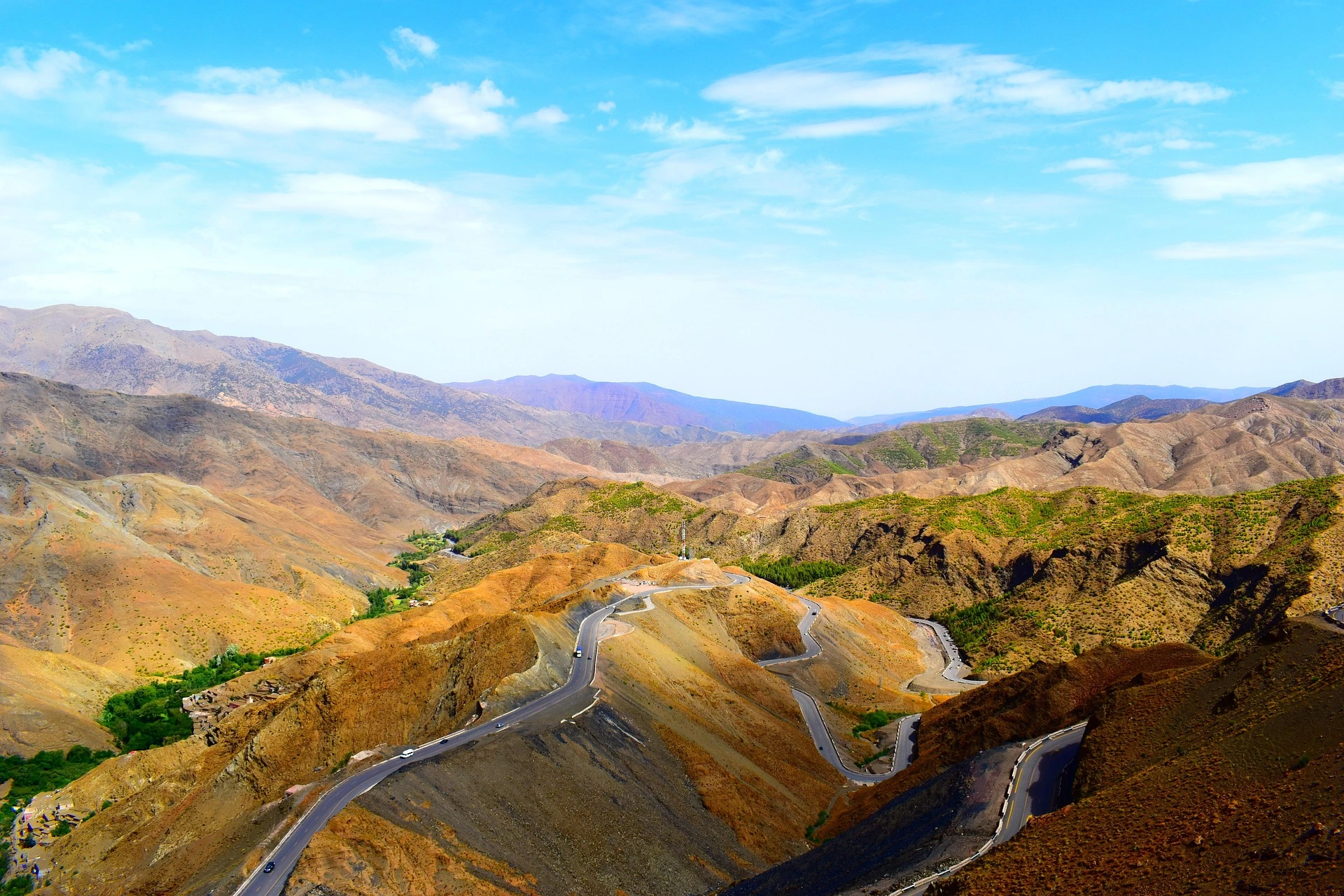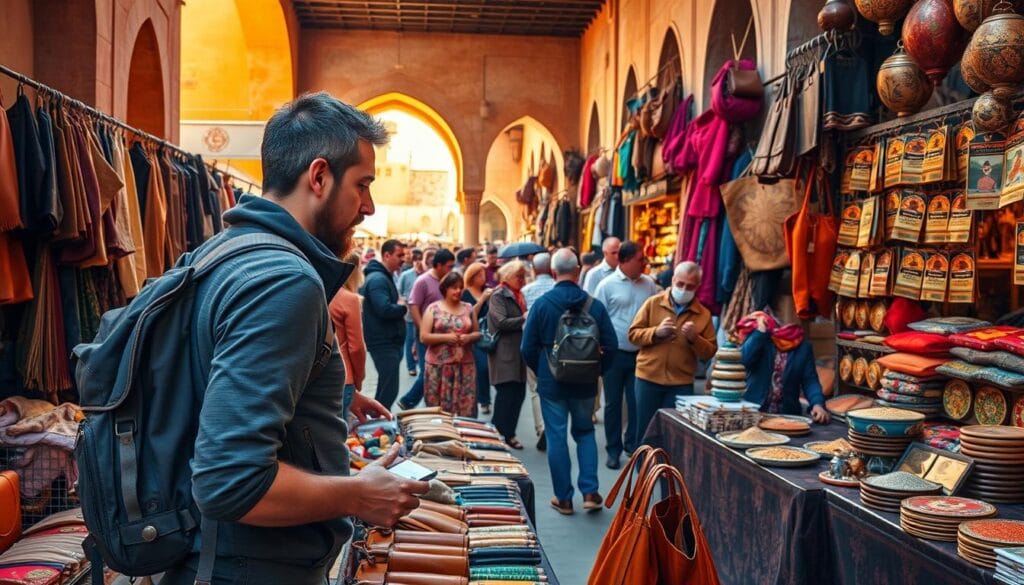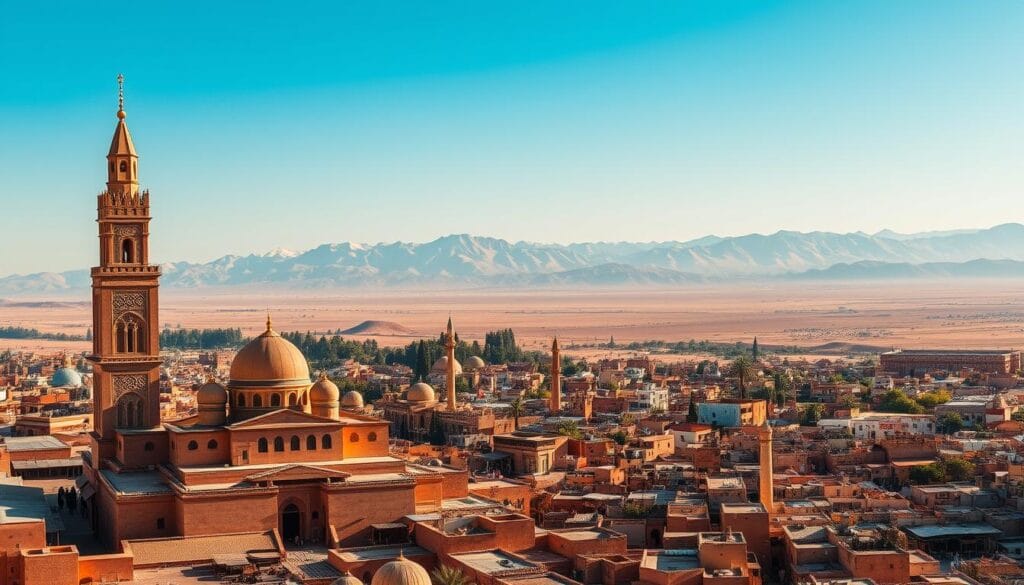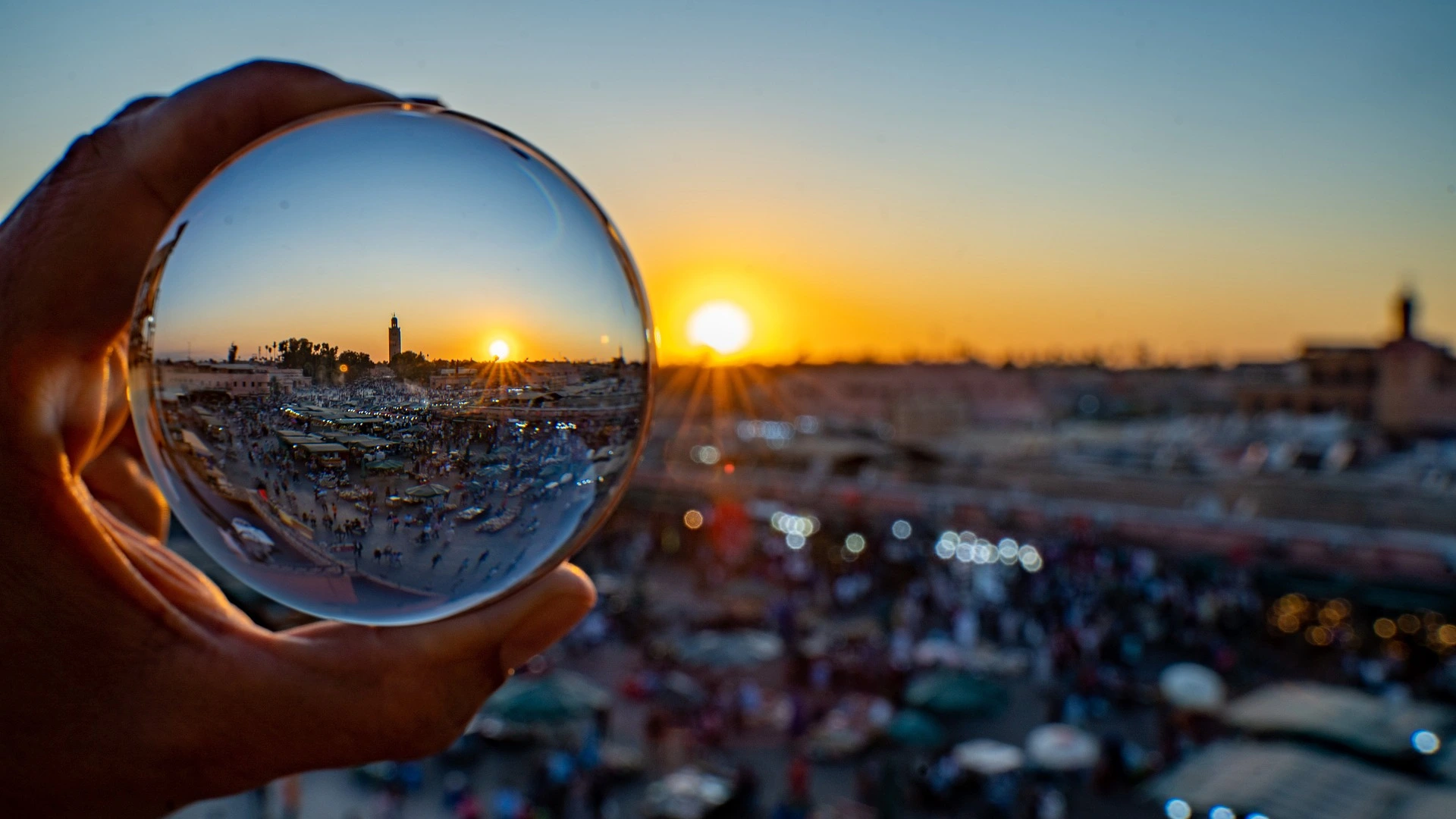Top Morocco Travel Tips to Make Your 2025 Trip Unforgettable
Top Morocco Travel Tips to Make Your 2025. As you plan your journey to this vibrant country in 2025, you’re likely excited to immerse yourself in its rich culture and stunning landscapes. With its unique blend of traditional and modern elements, Morocco is a destination that promises an unforgettable experience.
To ensure that you make the most of your trip, it’s essential to be well-prepared. This guide will provide you with valuable insights and practical advice on how to navigate the best times to visit, understand local customs, and explore the country’s hidden gems. By following these essential travel tips, you’ll be able to create lifelong memories of your time in this incredible country.
Table of Contents
ToggleUnderstanding Moroccan Culture and Customs
As you prepare for your trip to Morocco, understanding the local culture and customs is essential for a respectful and enjoyable journey. Morocco is a country with a rich cultural heritage, influenced by Islamic traditions, Berber customs, and Arab practices. Being aware of these cultural nuances will not only enhance your travel experience but also foster positive interactions with the locals.
Top Morocco Travel Tips to Make Your 2025: Key Cultural Practices to Respect
Morocco is a conservative country, and respecting local customs is crucial. For instance, during Ramadan, the Islamic month of fasting, you should refrain from eating, drinking, or smoking in public during daylight hours as a sign of respect. Additionally, public displays of affection are generally frowned upon.
When visiting mosques or rural areas, it’s essential to dress modestly. This means covering your shoulders and knees as a minimum. In mosques, women are often required to cover their hair as well.
| Cultural Practice | Description | Tips for Visitors |
|---|---|---|
| Ramadan | Islamic month of fasting | Avoid eating/drinking in public during daylight |
| Dress Code | Modest dressing required | Cover shoulders and knees; women cover hair in mosques |
| Public Affection | Discouraged | Refrain from kissing, hugging in public |
Language: What to Expect
While Arabic is the official language, many Moroccans speak French, especially in tourist areas. Berber dialects are also common in certain regions. Learning a few basic Arabic phrases like “hello” (Marhaba), “thank you” (Shukraan), and “goodbye” (Ma’a as-salaama) can go a long way in showing respect for the culture.
Dress Code: Staying Respectful
Dressing appropriately is a significant aspect of cultural etiquette in Morocco. For both men and women, it’s advisable to wear loose, modest clothing that covers the body. In rural areas or when visiting religious sites, the dress code should be even more conservative.
- Cover your shoulders and knees.
- Avoid revealing clothing.
- Consider the local customs and dress accordingly.
By being mindful of these cultural practices, you can ensure a respectful and enriching experience in Morocco.
Best Times to Visit Morocco
Morocco’s diverse climate means that the ideal time to visit depends on your preferences and what you want to do. The country’s climate varies from Mediterranean in the north to desert in the south, offering a range of experiences throughout the year.
Seasons and Weather Patterns
Morocco has four distinct seasons, each offering unique advantages for travelers.
- Spring (March to May): Enjoy mild temperatures and blooming landscapes, ideal for hiking and exploring.
- Summer (June to August): Warm weather prevails, perfect for beachgoers and those heading to the mountains.
- Autumn (September to November): Comfortable temperatures return, making it an excellent time for city tours and cultural events.
- Winter (December to February): Cooler temperatures in the north, while the south remains relatively warm; a good time for skiing in the Atlas Mountains.
| Season | Weather | Activities |
|---|---|---|
| Spring | Mild | Hiking, exploring |
| Summer | Warm | Beach activities, mountain visits |
| Autumn | Comfortable | City tours, cultural events |
| Winter | Cool/cold | Skiing, desert visits |
Festivals and Local Holidays
Morocco is known for its vibrant festivals and holidays, which can be a great time to experience the local culture.
Some notable events include:
- The Marrakech International Film Festival
- Eid al-Fitr, marking the end of Ramadan
- The Essaouira Gnawa Music Festival
These events offer a glimpse into Morocco’s rich cultural heritage and are definitely worth experiencing.
Avoiding Peak Tourist Crowds
If you prefer fewer tourists, consider visiting during the shoulder season (April-May or September-October).
Avoiding peak tourist season can make your travel experience more relaxed and allow for a more authentic interaction with local cultures.
Essential Moroccan Cuisine to Try
The flavors of Morocco are as diverse as its landscapes, with a cuisine that reflects its cultural heritage. Moroccan cuisine is a delicious blend of Arabic, Mediterranean, and African flavors, making it a unique and exciting culinary experience.
Must-Try Traditional Dishes
When exploring Moroccan cuisine, there are several traditional dishes you shouldn’t miss. Some of the most iconic include:
- Tagine: A slow-cooked stew named after the earthenware pot in which it’s cooked, typically made with meat, vegetables, and dried fruits.
- Couscous: A staple in Moroccan cuisine, often served with vegetables and meat.
- Pastilla: A savory pie made with layers of flaky pastry, meat, onions, and spices.
These dishes showcase the rich flavors and spices that characterize Moroccan cooking.
Popular Street Food Delights
Street food is an integral part of the Moroccan culinary experience. Some popular street food delights include:
- Grilled Meats: Skewers of marinated meat, often served with a side of spices and bread.
- Fresh Fruit: Morocco is known for its fresh and varied fruits, often enjoyed as a snack or dessert.
- B’stilla: A smaller, more portable version of pastilla, often enjoyed as a snack.
Street food in Morocco offers a flavorful and affordable way to experience the local cuisine.
Dietary Considerations
If you have dietary restrictions, you’ll find that many Moroccan restaurants can accommodate your needs. Here are some considerations:
| Dietary Need | Moroccan Options |
|---|---|
| Vegetarian | Vegetable tagine, couscous with vegetables |
| Vegan | Vegan tagine, some types of couscous |
| Gluten-Free | Some traditional dishes are gluten-free, but be sure to ask your server |
Don’t hesitate to inform your server about your dietary needs; many restaurants are happy to accommodate special requests.
How to Get Around Morocco
As you plan your trip to Morocco, consider the various ways to travel within the country, including public transport, car rentals, and local guides. Morocco’s diverse landscapes and vibrant cities are easily accessible through a variety of transportation options, making it relatively easy to get around.
Public Transportation Options
Morocco has a well-developed public transportation system, with buses and trains connecting major cities. The ONCF train network is particularly efficient, offering comfortable and relatively fast travel between cities like Marrakech, Fez, and Rabat.
- Supratours buses: These buses connect train stations to other destinations not covered by the train network.
- CTM buses: One of the most reliable bus companies, operating across the country.
- Local buses (known as grands taxis): Shared taxis that operate on fixed routes, often used for shorter distances.

Renting a Car: Pros and Cons
Renting a car in Morocco offers flexibility and the freedom to explore at your own pace. However, be prepared for chaotic driving conditions, especially in larger cities.
Pros:
- Flexibility to create your own itinerary.
- Access to remote areas not covered by public transport.
Cons:
- Chaotic driving conditions, particularly in cities.
- Parking challenges in busy areas.
Hiring Local Guides vs. Self-Exploration
Hiring a local guide can provide valuable insights into Morocco’s culture and hidden gems, while self-exploration offers independence. Consider your travel style and preferences when deciding.
| Aspect | Hiring a Local Guide | Self-Exploration |
|---|---|---|
| Cultural Insight | Provides deep understanding of local culture and customs. | Limited to your own research and observations. |
| Flexibility | Guide can adjust itinerary based on your interests. | You have complete control over your itinerary. |
Whether you choose public transportation, rent a car, or hire a local guide, Morocco is relatively easy to navigate. With these Morocco Travel Tips, you’ll be well-equipped to explore this vibrant country and enjoy the many things to do in Morocco.
Safety Tips for Travelers
Traveling to Morocco can be an exhilarating experience, and being informed about safety tips is crucial for making the most of your trip. As you explore this beautiful country, understanding the local safety environment will help you navigate through its vibrant cities and stunning landscapes with confidence.
Common Scams to Watch Out For
While Morocco is generally a safe country, there are certain scams that travelers should be aware of. Fake guides are a common issue; they might approach you with friendly smiles and offers of free tours, only to demand payment later. To avoid this, always verify the authenticity of guides through official tourist information centers or your hotel.
Another scam involves overpriced goods at markets or from street vendors. Be cautious when purchasing souvenirs, and always negotiate prices. Knowing the average price of items you’re interested in can help you make informed purchasing decisions.
Health Precautions to Consider
Staying healthy is a critical aspect of travel safety. Before your trip, consult your doctor about recommended vaccinations for travel to Morocco. Staying hydrated is also essential, especially when exploring the bustling markets or trekking through the desert.
Be mindful of the local cuisine and water quality. While Moroccan cuisine is delicious, it’s advisable to eat at reputable restaurants and avoid consuming tap water. Opting for bottled or filtered water can significantly reduce the risk of waterborne illnesses.
Emergency Contacts and Resources
In case of an emergency, having the right contacts can be a lifesaver. Make sure to note down the contact information of your country’s embassy in Morocco and local emergency services. Keeping a list of important phone numbers, such as your tour operator or local guide, can also be helpful.
Additionally, consider registering with your government’s travel advisory program to receive important safety and security updates about Morocco. This can provide you with timely information and assistance during your trip.
Currency and Budgeting
To make the most of your trip to Morocco, it’s essential to grasp the basics of the local currency and how to budget accordingly. Understanding the Moroccan dirham and having a clear budget plan can significantly enhance your travel experience.
Moroccan Dirham: Understanding Currency
The official currency of Morocco is the Moroccan dirham (MAD). It’s advisable to exchange your currency upon arrival or withdraw dirhams from ATMs. Credit cards are widely accepted in major cities and tourist areas, but cash is preferred in smaller towns and for local transactions.
Exchange Rates: Keep an eye on the exchange rate to get the best value for your money. You can check the current rate online or through a currency exchange app.
| Currency | Exchange Rate (approx.) | Tips |
|---|---|---|
| USD | 1 USD = 10 MAD | Exchange at authorized centers |
| EUR | 1 EUR = 11 MAD | Avoid exchanging at airports |
Budgeting Tips for Different Travelers
Budgeting in Morocco can vary greatly depending on your travel style. Here are some tips:
- Backpackers: Opt for hostels and guesthouses, eat at local souks (markets), and explore free or low-cost attractions.
- Mid-range travelers: Consider riads or mid-range hotels, dine at local restaurants, and take guided tours.
- Luxury travelers: Stay at high-end hotels, enjoy fine dining, and indulge in exclusive experiences like desert safaris.
Tipping Etiquette in Morocco
Tipping is a customary practice in Morocco, showing appreciation for good service. Here are some guidelines:
- Tip servers at restaurants and cafes (around 5-10 dirhams).
- Show appreciation to tour guides (around 50-100 dirhams per day).
- Consider tipping hotel staff for good service.

Accommodations: Where to Stay
Morocco offers a diverse range of accommodations to suit every traveler’s needs, from luxurious riads to budget-friendly hostels. Whether you’re looking for an authentic local experience or a modern luxury stay, Morocco has something for everyone.
Types of Accommodations Available
You can choose from a variety of accommodation types in Morocco, including traditional riads, modern hotels, and budget-friendly hostels. Riads are particularly popular for their traditional Moroccan architecture and tranquil interiors, often featuring beautiful gardens and courtyards.
If you’re looking for a unique experience, consider staying in a desert camp. These camps offer a chance to immerse yourself in the natural beauty of the Sahara Desert, with activities such as camel trekking and stargazing.
Recommended Areas for Tourists
When deciding where to stay in Morocco, consider the areas you want to explore. Marrakech is a popular destination, known for its vibrant souks and rich cultural heritage. The Medina of Fez is another historic area worth staying in, with its narrow streets and ancient architecture.
For a more relaxed atmosphere, consider staying in Essaouira, a coastal town known for its beautiful beaches and laid-back vibe.
Unique Stays: Riads and Desert Camps
For a truly authentic Moroccan experience, consider staying in a traditional riad. Many riads are located in the heart of old cities, offering easy access to local attractions.
Desert camps, on the other hand, provide a unique opportunity to experience the Sahara Desert’s natural beauty. You can enjoy activities such as camel rides, sandboarding, and watching the stars in the clear desert sky.
Exploring Morocco’s Must-See Destinations
Morocco is a treasure trove of experiences, from vibrant cities to breathtaking natural landscapes. As you explore this captivating country, you’ll discover a mix of cultural richness, historical landmarks, and natural beauty that will leave you enchanted.
Top Cities You Shouldn’t Miss
Morocco’s cities are a blend of traditional and modern charm. Marrakech is known for its vibrant souks and bustling Jemaa el-Fnaa square. Fez boasts ancient medinas and historical sites like the Al-Attarine Madrasa. Don’t miss Rabat, the capital city, with its rich history and cultural landmarks.
- Marrakech: Explore the souks, visit the Bahia Palace, and enjoy the vibrant atmosphere.
- Fez: Wander through the ancient medina, visit the Al-Attarine Madrasa, and explore the historic sites.
- Rabat: Discover the Kasbah of the Udayas, visit the Hassan Tower, and enjoy the city’s cultural heritage.
Hidden Gems Off the Beaten Path
Beyond the popular destinations, Morocco has many hidden gems waiting to be discovered. The Chefchaouen village, nestled in the Rif Mountains, is known for its blue-painted buildings and relaxed atmosphere. The Merzouga Dunes offer a serene desert experience with camel treks and stargazing opportunities.

Natural Attractions for Adventure Lovers
Morocco is a paradise for adventure seekers, with its diverse landscapes offering a range of activities. The Atlas Mountains are perfect for hiking and trekking, while the Atlantic coast offers surfing and beach activities. For a unique experience, explore the Sahara Desert with camel treks or 4×4 safaris.
- Atlas Mountains: Hike through the valleys, visit Berber villages, and enjoy the scenic views.
- Atlantic coast: Surf in Taghazout, relax on the beaches of Essaouira, and enjoy water sports.
- Sahara Desert: Embark on camel treks, watch the sunrise over the dunes, and experience desert camping.
With its diverse attractions and rich cultural heritage, Morocco has something for every traveler. Whether you’re exploring the cities, discovering hidden gems, or seeking adventure in nature, Morocco is sure to leave a lasting impression.
Engaging with Local Art and Crafts
As you explore Morocco, you’ll discover a world of captivating art and crafts that reflect the country’s rich cultural heritage. Moroccan artisans are known for their exceptional skill in creating beautiful pieces that are both functional and decorative.
Popular Souvenirs to Bring Home
When shopping for souvenirs, you’ll find a variety of unique items that showcase Moroccan craftsmanship. Some popular choices include:
- Intricately designed pottery and ceramics
- Vibrant textiles, such as hand-woven rugs and blankets
- Beautifully crafted jewelry, often featuring traditional Berber designs
- Exquisite woodwork, including carved doors and decorative boxes
Best Markets for Authentic Purchases
To experience the best of Moroccan art and crafts, visit local markets, known as souks. The souks in Marrakech are particularly famous for their vibrant atmosphere and wide range of goods. When shopping, remember to:
- Haggle politely, as it’s a part of the local culture
- Inspect items carefully to ensure authenticity and quality
- Support local artisans by purchasing directly from them
Supporting Local Artisans
By engaging with local artisans and purchasing their crafts, you’re not only bringing home a unique souvenir but also contributing to the local economy. Many artisans rely on the income from their crafts to support their families and communities. Consider visiting workshops or cooperatives to learn more about traditional crafts and see artisans at work.
When interacting with artisans, be respectful of their customs and traditions. A little cultural etiquette goes a long way in making your experience more enjoyable and meaningful. For example, removing your shoes before entering a workshop or being mindful of local dress codes can make a positive impression.
Preparing for Your Trip to Morocco
As you finalize your plans to visit Morocco, it’s essential to prepare for a smooth and enjoyable journey. With your itinerary in place, focus on the necessary arrangements to make your trip unforgettable.
Visa and Insurance Essentials
Check the visa requirements for your nationality and ensure you have adequate travel insurance that covers Morocco. This will help you avoid any last-minute hassles and ensure you’re protected during your travels.
Packing for Morocco
Creating a Morocco packing list can help you stay organized. Include essentials like comfortable clothing, sun protection, and a good camera. The season of your visit will dictate specific items, but layers are always a good idea due to the varying desert and mountain climates.
Staying Safe and Connected
Consider travel safety in Morocco by staying informed about local conditions and being mindful of your belongings, especially in crowded areas. Utilize travel apps and resources to navigate Morocco, from language translators to maps and guides, enhancing your overall experience.

